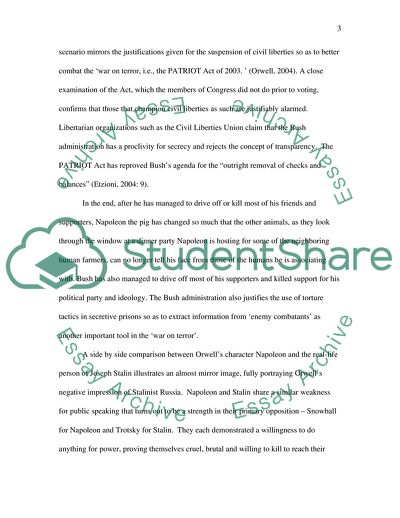Cite this document
(Animal Farm by George Orwell Essay Example | Topics and Well Written Essays - 1500 words, n.d.)
Animal Farm by George Orwell Essay Example | Topics and Well Written Essays - 1500 words. https://studentshare.org/literature/1714581-essay-on-the-book-animal-farm-by-george-orwell
Animal Farm by George Orwell Essay Example | Topics and Well Written Essays - 1500 words. https://studentshare.org/literature/1714581-essay-on-the-book-animal-farm-by-george-orwell
(Animal Farm by George Orwell Essay Example | Topics and Well Written Essays - 1500 Words)
Animal Farm by George Orwell Essay Example | Topics and Well Written Essays - 1500 Words. https://studentshare.org/literature/1714581-essay-on-the-book-animal-farm-by-george-orwell.
Animal Farm by George Orwell Essay Example | Topics and Well Written Essays - 1500 Words. https://studentshare.org/literature/1714581-essay-on-the-book-animal-farm-by-george-orwell.
“Animal Farm by George Orwell Essay Example | Topics and Well Written Essays - 1500 Words”. https://studentshare.org/literature/1714581-essay-on-the-book-animal-farm-by-george-orwell.


